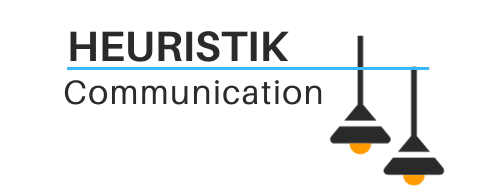
How to boost your energy levels without caffeine?
Caffeine has long been the immediate go-to for many when a boost of energy is needed. But have you ever wondered if there are other ways to stimulate your body into a state of heightened mental and physical readiness without indulging in a cup of coffee? The good news is, there are plenty of natural and effective ways to do precisely that. This article explores various methods on how you can increase your energy levels without the need for caffeine.
Getting Quality Sleep
Sleep is one of the most underrated, yet vital components of maintaining optimum energy levels. It isn’t just about getting 7-9 hours of sleep, but ensuring that it’s quality, undisturbed rest. To promote better sleep, create a bedroom environment conducive to good sleep. This includes keeping the room dark, quiet, cool, and free from electronic devices.
En parallèle : How does stress impact your physical health?
Developing a consistent sleep schedule can also help. This means going to bed and waking up at the same time every day, even on weekends. Regular exercise and a healthy diet can further enhance the quality of your sleep, as well as energy levels during the day.
Limiting daytime naps to under 30 minutes is another way to ensure a smooth sleep cycle. While naps can act as a quick energy booster, they can also interfere with your night-time sleep if they’re too long or too late in the day.
Lire également : What is the role of sleep in muscle recovery?
Hydrating with Water
Water is vital for our survival and functioning. Every cell, tissue, and organ in your body needs water to work correctly. When your body lacks water, it has to work much harder to maintain its regular functions, leading to feelings of fatigue and decreased energy levels.
Staying adequately hydrated can help prevent this. Aim to drink at least 8 glasses of water a day. The amount can increase depending on your body weight and physical activity levels. Drinking water first thing in the morning can also give your body a much-needed hydration boost, kickstarting your metabolism and waking up your body for the day.
Managing Stress Levels
Stress can drain your energy levels drastically. Chronic stress can lead to a host of health issues, including fatigue. Therefore, it’s crucial to find ways to manage your stress effectively.
One method is through regular exercise. Physical activity produces endorphins — chemicals in the brain that act as natural painkillers and mood elevators. Regular exercise can also improve your sleep quality, further reducing stress.
Another way to manage stress is through relaxation techniques such as yoga, deep breathing, or meditation. These activities can help clear your mind, reduce heart rate, and lower blood pressure.
Boosting Energy with Vitamin B
Vitamin B plays a key role in energy production, helping to convert the food you eat into energy. A deficiency in Vitamin B can lead to tiredness, weakness, and fatigue.
You can get Vitamin B from a variety of foods, including whole grains, beans, peas, and lentils, meat, eggs, and dairy products. Supplements are also available, but it’s best to consult with a healthcare professional before starting any new supplement regimen.
Eating Energy-Boosting Foods
Your diet plays a crucial role in maintaining your energy levels. Consuming nutrient-rich foods can give your body the fuel it needs to function optimally throughout the day.
Opt for complex carbohydrates like whole grains, fruits, and vegetables, which are slowly digested and provide a steady, long-lasting energy supply. Protein-rich foods like lean meat, fish, and dairy also contribute to energy production.
Avoiding processed foods and sugars is also crucial. While they might give you an immediate energy boost, this is often followed by a crash, leaving you feeling more tired than before.
Remember, the best way to boost your energy levels is by listening to your body and giving it what it needs. Whether it’s quality sleep, proper hydration, stress management, a nutrient-rich diet, or a combination of these, there are plenty of ways to keep your body energized without reaching for that cup of coffee.
Incorporating Chia Seeds into Your Diet
Surprisingly, tiny chia seeds are a powerhouse of nutrients and can effectively boost your energy levels without caffeine. These seeds are packed with omega-3 fatty acids, fiber, protein, calcium, antioxidants, and many other essential nutrients that can help maintain your energy levels throughout the day.
One of the biggest benefits of chia seeds is that they are slow to digest. This means that they release their nutrients slowly into your bloodstream, providing a steady stream of energy over a longer period. This makes them an excellent choice for a natural energy boost, especially if you’re looking to avoid the sudden spikes and crashes that can come with caffeine or sugar.
You can easily incorporate chia seeds into your diet by adding them to your breakfast cereal, yogurt, salads, or smoothies. You can also make chia pudding by soaking the seeds in a liquid like almond milk or coconut water. When soaked, these seeds expand and form a gel-like substance, making them easy to digest and absorb.
To get the most benefits from chia seeds, try to consume around 1-2 tablespoons per day. Remember, moderation is key. While chia seeds offer numerous health benefits, too much can lead to digestive distress due to their high fiber content.
Cutting Back on Sugar
Sugar may seem like a quick fix for boosting energy levels, but the reality is quite different. When you consume sugar, your blood sugar levels spike, causing a surge of energy. However, this energy boost is short-lived and is usually followed by a crash, which can leave you feeling more drained than before.
Instead of reaching for sweets or energy drinks when you feel tired, opt for healthier alternatives like fruits, nuts, and vegetables. These foods can provide your body with the nutrients it needs to boost energy levels in a more sustainable and healthier way.
Also, try to avoid hidden sugars found in processed foods, drinks, and condiments. Always read the labels before purchasing any product. A high sugar content can interfere with your health and energy levels, making you feel sluggish and fatigued over time.
Conclusion
While caffeine might seem like the easiest way to boost your energy levels, there are numerous other ways to increase your energy without it. By focusing on getting quality sleep, staying hydrated, managing stress, incorporating Vitamin B and energy-boosting foods like chia seeds into your diet, and cutting back on sugar, you can effectively maintain your energy levels throughout the day.
Remember, your health should be your priority. Making small, sustainable changes to your everyday habits can go a long way in improving your energy levels and overall well-being. So next time you feel tired, resist the urge to reach for that cup of coffee and instead try implementing some of these natural, caffeine-free methods to boost your energy. It might take some time to adjust to these changes, but the long-term benefits are certainly worth the effort.
